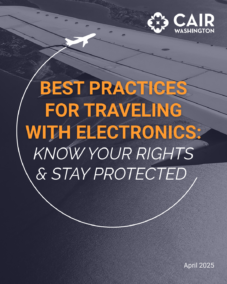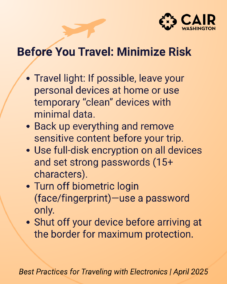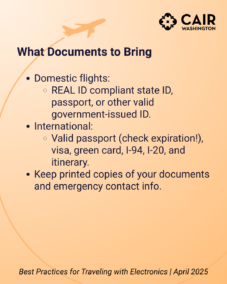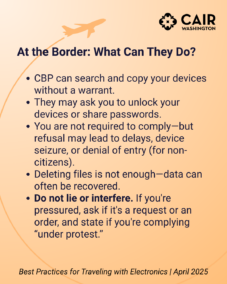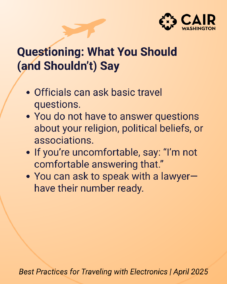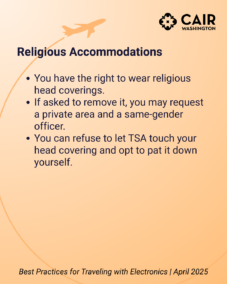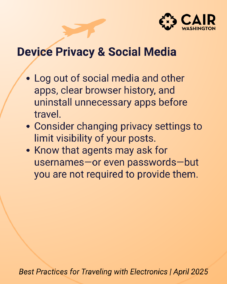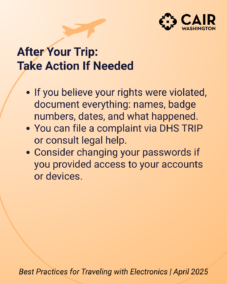Best Practices for Traveling with Electronics: Know Your Rights & Stay Protected Before You Travel: Minimize Risk
- Travel light: If possible, leave your personal devices at home or use temporary “clean” devices with minimal data.
- Back up everything and remove sensitive content before your trip.
- Use full-disk encryption on all devices and set strong passwords (15+ characters).
- Turn off biometric login (face/fingerprint)—use a password only.
- Shut off your device before arriving at the border for maximum protection.
What Documents to Bring
- Domestic flights: REAL ID, passport, or other valid government-issued ID.
- International: Valid passport (check expiration!), visa, green card, I-94, I-20, and itinerary.
- Keep printed copies of your documents and emergency contact info.
At the Border: What Can They Do?
- CBP can search and copy your devices without a warrant.
- They may ask you to unlock your devices or share passwords.
- You are not required to comply—but refusal may lead to delays, device seizure, or denial of entry (for non-citizens).
- Deleting files is not enough—data can often be recovered.
- Do not lie or interfere. If you’re pressured, ask if it’s a request or an order, and state if you’re complying “under protest.”
Questioning: What You Should (and Shouldn’t) Say
- Officials can ask basic travel questions.
- You do not have to answer questions about your religion, political beliefs, or associations.
- If you’re uncomfortable, say: “I’m not comfortable answering that.”
- You can ask to speak with a lawyer—have their number ready.
Religious Accommodations
- You have the right to wear religious head coverings.
- If asked to remove it, you may request a private area and a same-gender officer.
- You can refuse to let TSA touch your head covering and opt to pat it down yourself.
Device Privacy & Social Media
- Log out of apps, clear browser history, and uninstall unnecessary apps before travel.
- Consider changing privacy settings to limit visibility of your posts.
- Know that agents may ask for usernames—or even passwords—but you are not required to provide them.
After Your Trip: Take Action If Needed
- If you believe your rights were violated, document everything: names, badge numbers, dates, and what happened.
- You can file a complaint via DHS TRIP or consult legal help.
- Consider changing your passwords if you provided access to your accounts or devices.

